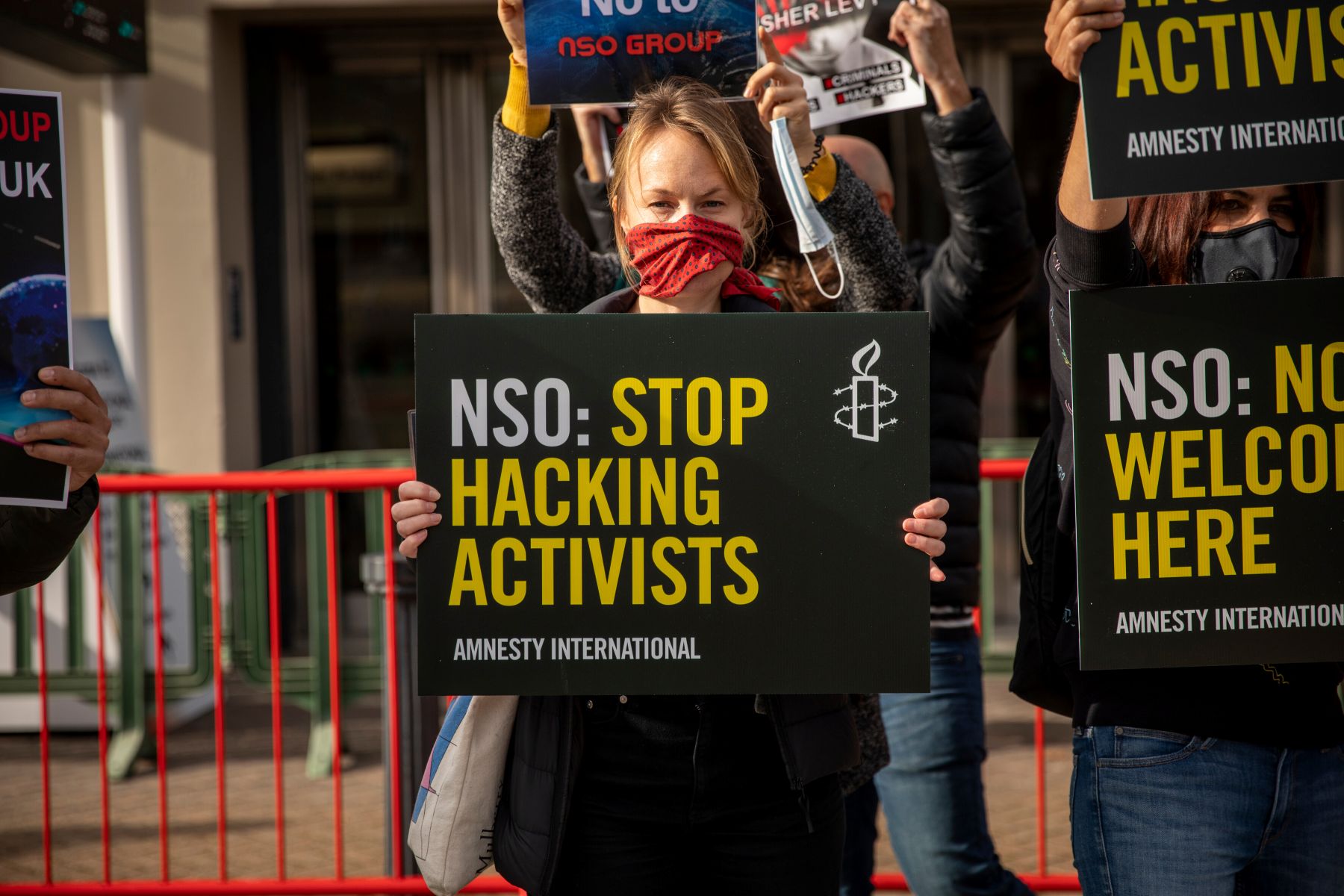Responding to a ruling that spyware maker NSO Group must pay more than USD167 million in damages to Whatsapp, Rebecca White, Amnesty International’s researcher on targeted surveillance, said:
“This is a momentous win in the fight against spyware abuse. NSO Group, which develops the notorious and highly invasive Pegasus spyware, has been implicated in severe human rights violations against civil society, including journalists and activists, globally.
“For years, Amnesty International and civil society partners have documented how spyware companies, like NSO Group, have enabled human rights abuses on a massive scale. The surveillance industry has failed to act. We trust that this victory will deter the spyware industry, its investors and its government customers worldwide. We hope this judgement offers some measure of solace to Pegasus’ thousands of victims. Let this be a signal, loud and clear, that change is imminent. Those who misuse spyware to infringe on human rights will be held accountable and cannot act with impunity.
We trust that this victory will deter the spyware industry, its investors and its government customers worldwide.
Rebecca White, Amnesty International researcher on targeted surveillance
“This decision should serve as a wake-up call to governments to take proactive, concrete steps to regulate the surveillance industry, to enforce safeguards on their surveillance practices, and to comprehensively ban tools that are inherently incompatible with human rights obligations and standards, such as Pegasus.”
Background
This decision is the culmination of a six-year lawsuit, originally filed in the Northern California District Court in October 2019. WhatsApp and its parent company Meta sued NSO Group for using WhatsApp’s servers to target more than 1,400 users’ devices with Pegasus spyware. This follows a significant ruling in this case in December 2024, which found that NSO Group had unlawfully targeted Whatsapp’s users and infrastructure with the spyware. Legal documents revealed for the first time that NSO Group is the entity which “installs and extracts” the data from targeted devices, as opposed to the government customers it sells the tool to.
In 2020, Amnesty International and other civil society partners intervened in the WhatsApp v. NSO Group lawsuit by filing an amicus curae briefing outlining the human rights implications of Pegasus attacks and highlighting individual testimonies from those who had been targeted.
In continuing its pursuit for accountability for human rights violations, in September, 2024, Amnesty International filed an amicus curiae brief at the Bangkok Civil Court in the case of activist Jatupat Boonpattararaksa, whose phone was infected with Pegasus spyware three times in 2021.
In 2021 Amnesty International’s Security Lab were technical partners in the Pegasus Project, which exposed for the first time NSO Group’s role in the spyware crisis at a global scale.
In response to a request for comment from AFP, NSO Group said they will “carefully examine the verdict’s details and pursue appropriate legal remedies, including further proceedings and an appeal” and that they believe that their “technology plays a critical role in preventing serious crime and terrorism and is deployed responsibly by authorized government agencies.”
Header image: NSO Group Demonstration – International Security Expo, London, 2021 © Amnesty International






















